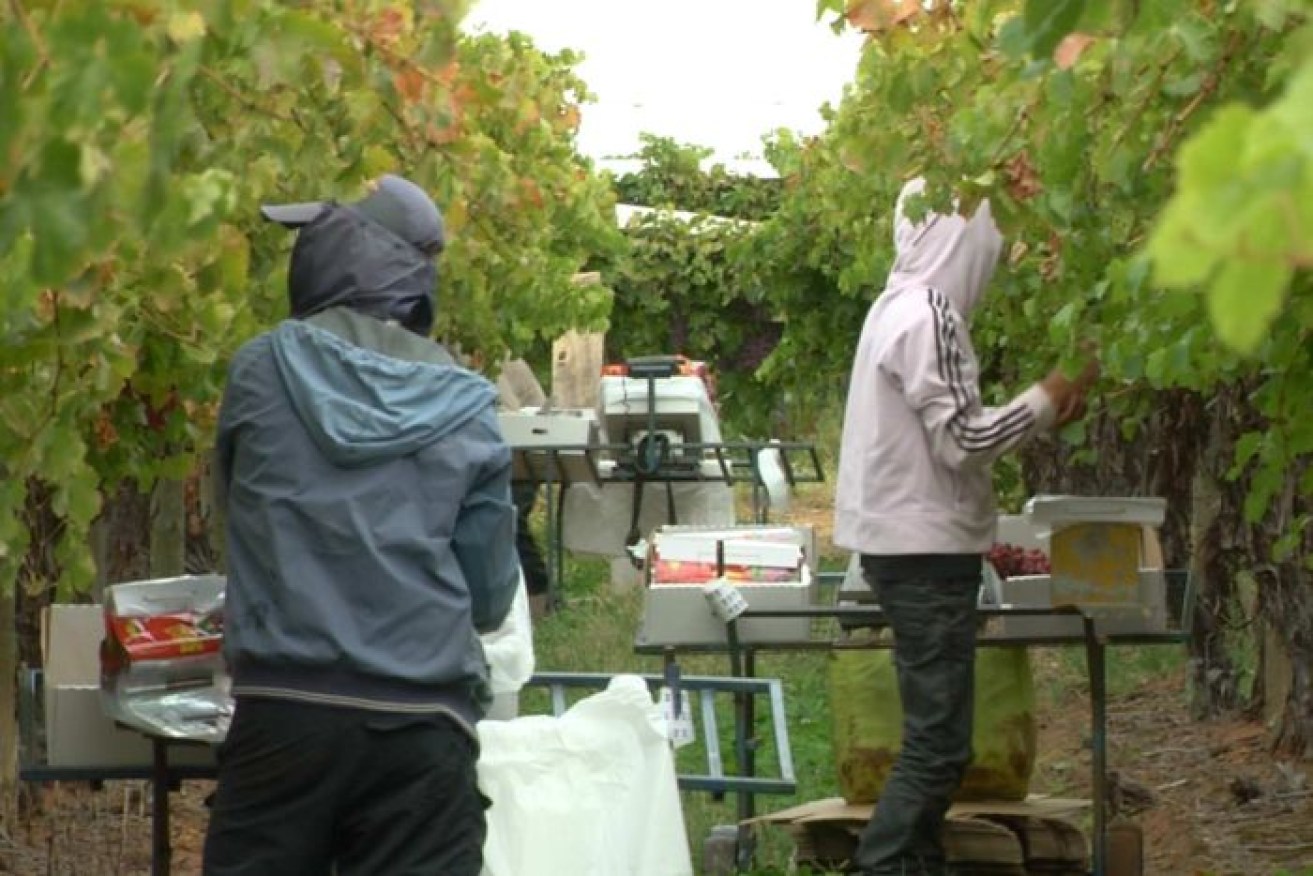Foreign workers ripped off, bullied and harassed, investigation finds

Foreign workers are working "like slaves" on some farms in Australia, a report has found. Photo: ABC
A three-year investigation into worker exploitation by Australia’s workplace watchdog has found some foreign workers on Australian farms are “bonded like slaves” to dodgy labour hire contractors.
The nation’s multibillion-dollar fruit and vegetable sector has been under intense scrutiny in recent years, following revelations of poor working and pay conditions for some farm workers, who are often from overseas.
The Fair Work Ombudsman’s Harvest Trail Inquiry report will be released later in the year, but the ABC can reveal some of the report highlights presented to growers at a recent horticulture gathering in Brisbane.
Jennifer Crook, assistant director in the compliance and enforcement branch of the FWO and a leader in the watchdog’s regional services team, said the investigation had been confronting.
“In some cases, the FWO encountered situations where a person is virtually bonded like a slave to a particular [labour hire] provider, on the basis they have been told they won’t have their visa extension signed unless they see out the season with them,” she said.
“We have had cases where [workers] are driven to their accommodation via ATMs and asked to provide money in advance for bond, transport and accommodation costs.
“We saw backpackers being lured to regional centres by dodgy labour hire operators, treating them poorly, bullying and sexually harassing them and ripping them off to the tune of hundreds – and sometimes thousands – of dollars per person.”
Challenge for horticulture industry

The Fair Work Ombudsman’s full report will be released later this year. Photo: ABC
Ms Crook said investigators referred such incidents to local police and the Department of Immigration, but admitted catching unscrupulous labour contractors was difficult.
“The [labour hire providers] have moved offshore outside of the FWO’s jurisdiction.”
The Fair Work Ombusdman’s investigation was thorough, with FWO investigators visiting hundreds of farms across Australia to meet workers and farmers.
Ms Crook told farmers who attended the Hort Connections gathering in Brisbane last week that the most common issue raised throughout the investigation centred around piece rates, where workers were paid based on how much fruit they picked.
“We have seen workers being paid piece rates despite no piece work agreement being in place, which must be provided to the worker in writing … which must set out the rate of pay,” she said.
The full report, which was described as “a very large body of work”, will be released later in the year and made available to growers in an interactive online format.
Difficult work for investigators
Ms Crook said the inquiry was difficult for Fair Work investigators because payments were often made off the books, payslips were not issued and record keeping was inadequate.
“It also doesn’t allow the employees to understand how much they’ve been paid, how much tax has been deducted and how much superannuation has been forwarded on their behalf,” she said.
In 2017 the Federal Government amended the Fair Work Act to address some of these concerns, in attempt to deter contractors or employers from exploiting workers.
The monetary penalty for a serious contravention of workplace laws was increased tenfold, while employers are also now prevented from asking for cash back from employees.
Also challenging for Harvest Trail investigators, and for the farmers who use labour hire companies to source pickers, was the extent of multiple subcontracting levels the FWO uncovered.
“We would go on a farm and find they [the farmer] might be dealing with one or two contractors, only to learn some of those contractors have multiple layers of subcontracting that the grower is not aware of,” Ms Crook said.
About 20 per cent of the complaints or requests for help made to the FWO each year come from visa holders, according to Ms Crook.
“That is almost one in five. That number has been increasing … [Visa holders] are involved in more than half of the matters we put into court last year,” she said.
Growers can be held liable
About 78 per cent of Australian farmers rely on foreign workers to help harvest their crop, according to a University of Adelaide report in 2016 into the future of labour supply in Australia’s vegetable industry.
Meanwhile, the Australian Bureau of Agricultural and Resource Economics and Science says about 70 per cent of farmers rely on overseas labour.
Ms Crook pointed out that not all farmers use dodgy labour hire companies, or take advantage of their workers if they employ them directly.
However, she said that was not a reason for farmers to be complacent, and warned growers could be held liable as an accessory to a dodgy labour hire company under the Fair Work Act, if they knowingly entered into a contract with them.
Farmers frustrated by exploitation reports
John Paul Slaven, a vegetable farmer in Western Australia’s Ord Valley, said he was fed up being undercut by farmers who used cheap labour.
This year he decided not to grow vegetables because he could not afford to pay workers to pick them, but he is frustrated some growers are not as ethical as him.
“Not that I do it, but I have no doubt that if I were to exploit workers I could get away with it, and I would be profitable again. It would be dead easy,” he said.
“When their break-even price is lower than ours, it increases the pressure on us because they can keep producing when we can’t.
Rachel Mackenzie, from Queensland’s peak horticulture lobby group Growcom, said change needed to happen within the industry by rewarding farmers who did the right thing.
“We are working with supermarkets and other retailers to develop a mechanism for them to exclude the dodgy operators from the supply chain,” she said.
“We need to be able to stop being defined by the lowest common denominator and instead create a benefit for doing the right thing, and that benefit should be market access.
“Industry is aware of these issues and wants to be proactive and do the right thing.”








